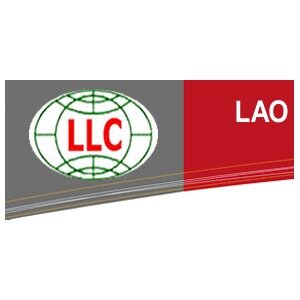Best Business Lawyers in Laos
Share your needs with us, get contacted by law firms.
Free. Takes 2 min.
Or refine your search by selecting a city:
List of the best lawyers in Laos
About Business Law in Laos
Business Law in Laos is largely governed by the Investment Promotion Law and the Enterprise Law, which apply to both domestic and foreign businesses alike. These laws regulate the establishment, operation, rights and obligations and dissolution of businesses in Laos. They are overseen by several governmental agencies including the Ministry of Planning and Investment and the Ministry of Industry and Commerce. These bodies ensure that businesses comply with the laws and regulations governing their operations.
Why You May Need a Lawyer
There are numerous situations where the expertise of a lawyer may be necessary for your business. These include setting up a new business, understanding the tax laws, ensuring compliance with business operation laws, pursuing or defending a lawsuit, labor disputes, or when dealing with government regulations. Furthermore, due to potential language barriers and the complexities of Lao business laws, hiring a lawyer can ensure that your rights are protected and your business can operate smoothly.
Local Laws Overview
There are several local laws you should be familiar with when doing business in Laos. Firstly, foreign investors need approval from the Government of Laos. There are also laws related to taxation, employment, environment, land and real estate. Understanding these laws are pivotal to ensuring your business is legally complaint. In addition, certain sectors are governed by specific laws such as the Mining Law for mining companies and the Forestry Law for companies that operate in the forestry sector.
Frequently Asked Questions
1. Can foreign businesses operate in Laos?
Yes, foreign businesses can operate in Laos but they need to obtain approval from the government and comply with the Investment Promotion Law.
2. What are the common forms of business in Laos?
The common forms of business in Laos are limited company, partnership and sole proprietorship.
3. What is the corporate tax rate in Laos?
The corporate income tax rate in Laos is 24%.
4. What is the minimum capital requirement for foreign businesses?
The minimum capital requirement for foreign businesses may vary depending on the sector or industry.
5. Are there special economic zones in Laos?
Yes, there are special economic zones in Laos where businesses can benefit from several incentives such as tax exemptions.
6. Can I own land as a foreigner in Laos?
No, foreigners cannot own land in Laos but they can lease land for up to 50 years.
7. How long does it take to set up a business in Laos?
The process can take up to two to three months depending on the type of business and sector.
8. What is the law governing labor in Laos?
The labor in Laos is governed by the Labor Law, and it covers labor contracts, wages, working hours, and disputes.
9. How can I protect my intellectual property in Laos?
Laos has laws in place to protect intellectual property rights. Legal advice should be sought to ensure protection.
10. What are the main challenges of setting up a business in Laos?
The main challenges include understanding and complying with Laos business laws, language barriers, and bureaucratic procedures.
Additional Resources
The Ministry of Planning and Investment and the Ministry of Industry and Commerce in Laos are two major resources for business law. In addition, Laos Chamber of Commerce and Industry can also provide useful guidance and resources for businesses in Laos.
Next Steps
If you require legal assistance in doing business in Laos, consider hiring a local lawyer who specializes in business law and has an understanding of the Lao legal system. Familiarize yourself with the local laws and regulations applicable to your business, and ensure you remain compliant with all requirements. In addition, establishing connections with local business organizations can provide valuable insights and assistance.
Lawzana helps you find the best lawyers and law firms in Laos through a curated and pre-screened list of qualified legal professionals. Our platform offers rankings and detailed profiles of attorneys and law firms, allowing you to compare based on practice areas, including Business, experience, and client feedback.
Each profile includes a description of the firm's areas of practice, client reviews, team members and partners, year of establishment, spoken languages, office locations, contact information, social media presence, and any published articles or resources. Most firms on our platform speak English and are experienced in both local and international legal matters.
Get a quote from top-rated law firms in Laos — quickly, securely, and without unnecessary hassle.
Disclaimer:
The information provided on this page is for general informational purposes only and does not constitute legal advice. While we strive to ensure the accuracy and relevance of the content, legal information may change over time, and interpretations of the law can vary. You should always consult with a qualified legal professional for advice specific to your situation.
We disclaim all liability for actions taken or not taken based on the content of this page. If you believe any information is incorrect or outdated, please contact us, and we will review and update it where appropriate.
Browse business law firms by service in Laos
Laos Attorneys in related practice areas.
Browse business law firms by city in Laos
Refine your search by selecting a city.












